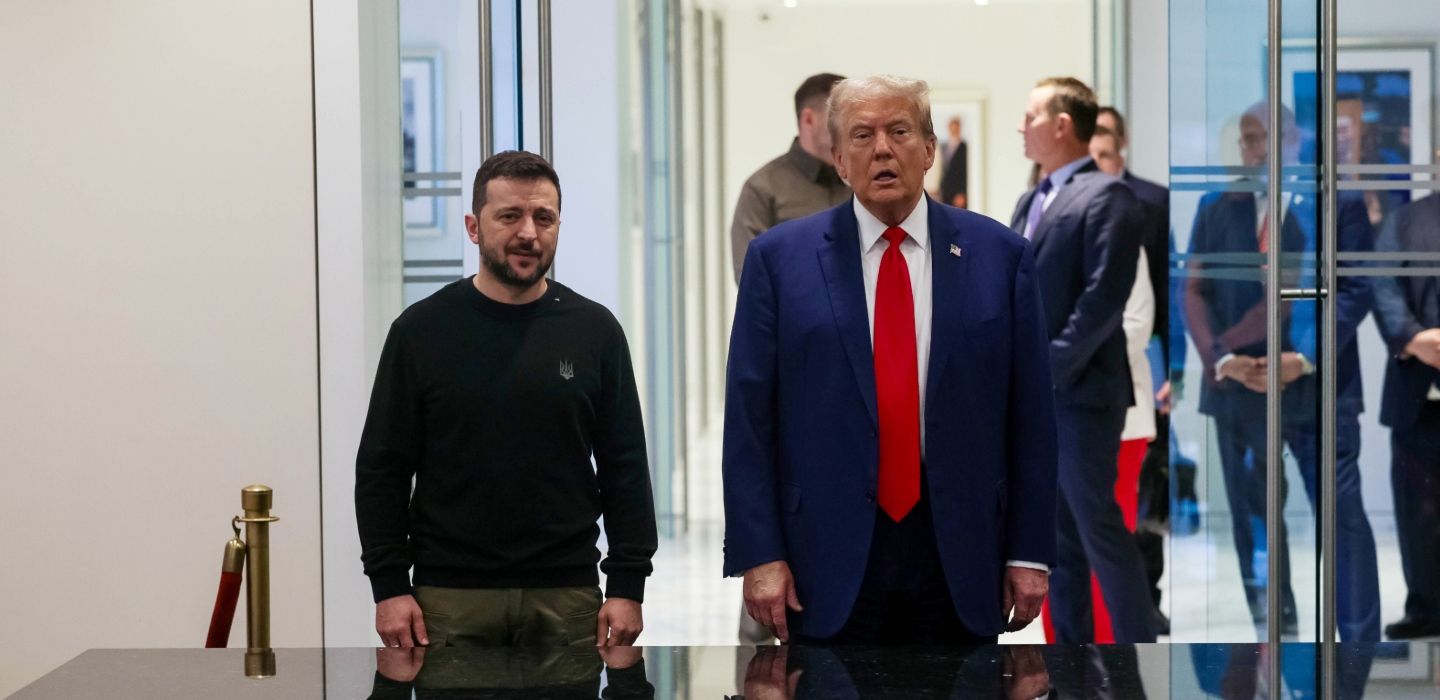What should happen when sanctions designed to weaken the Belarusian regime end up enriching and strengthening the Kremlin?
Denis Kishinevsky
{
"authors": [
"Konstantin Skorkin"
],
"type": "commentary",
"blog": "Carnegie Politika",
"centerAffiliationAll": "",
"centers": [
"Carnegie Endowment for International Peace",
"Carnegie Russia Eurasia Center"
],
"englishNewsletterAll": "",
"nonEnglishNewsletterAll": "",
"primaryCenter": "Carnegie Russia Eurasia Center",
"programAffiliation": "",
"programs": [],
"projects": [],
"regions": [
"Ukraine",
"United States"
],
"topics": [
"Foreign Policy",
"NATO",
"Global Governance",
"Military",
"Security"
]
}
Opinion among Ukrainians about Trump is divided: some believe his presidency will be a disaster for their cause in the war with Russia; others see it as an opportunity.
Little is known about what Donald Trump’s foreign policy will look like when he returns to the U.S. presidency in January 2025. Will he be isolationist? Or will he seek to aggressively enforce U.S. interests abroad? For Ukraine—which is dependent on U.S. aid in its war with Russia—Trump’s election victory has fueled anxiety in some quarters, and hope in others.
At least on the surface, Trump’s victory should be bad news for Kyiv. The president-elect has said repeatedly he wants to end the war, without showing much interest in Kyiv’s opinion. He has objected to the amount of U.S. aid sent to Ukraine, which he considers excessive. Furthermore, Trump and Ukrainian President Volodymyr Zelensky have had a complex political relationship: it was communication between the two men that led to a 2019 effort to impeach Trump during his first term for attempting to force Kyiv to investigate his rival presidential candidate Joe Biden.
Zelensky’s last visit to the United States, which took place before the presidential election in November, was not a success in terms of building relations with Trump. The Ukrainian president was accused by Republicans of cozying up to the Democrats, and although Trump and Zelensky did meet, there was no breakthrough.
Initial news about Trump’s appointments suggests the U.S. leader will be surrounded by men and women who are already on bad terms with Kyiv. U.S. vice president-elect J. D. Vance is known to be skeptical of Zelensky, as is the increasingly influential billionaire Elon Musk. In 2022, the National Security and Defense Council of Ukraine accused the current candidate to be director of national intelligence, Tulsi Gabbard, of working for Russia. Furthermore, it looks like ex-secretary of state Mike Pompeo, who is looked on favorably in Kyiv, will not end up on Trump’s top team.
There is a widespread belief that Trump will cut U.S. aid to Ukraine and attempt to impose a peace settlement that will be unfavorable to Kyiv. And given Trump’s skepticism about NATO, it’s also going to be much harder for Ukraine to pursue its ambition of joining the Western military alliance.
However, all this does not mean that despair reigns in Kyiv. Many Ukrainians remember a different Trump: his first presidency saw the White House sign off on the first deliveries of Javelin anti-tank missiles to Ukraine, as well as a direct confrontation between U.S. and Russian forces (albeit, Russian mercenaries fighting in Syria).
Some optimists in Kyiv believe that any Trump peace initiative will fall apart when it comes up against Kremlin intransigence. And then, having become disillusioned with Russian President Vladimir Putin, Trump might not just forget about cutting aid to Ukraine; he might even remove current restrictions and red lines. Ukraine’s leadership has also taken hope from Trump putting forward foreign policy hawks Mike Waltz and Marco Rubio for the top jobs of, respectively, national security adviser and secretary of state.
Recently, Kyiv has made an effort to build a more balanced network among the U.S. elites, cultivating contacts among both Republicans and Democrats. One point in Zelensky’s “victory plan,” which was outlined this year, suggested inviting Western investors to develop Ukraine’s natural resources—likely an attempt to entice the business-minded Trump.
Another consequence of Trump’s election has been to reinvigorate the Ukrainian opposition—particularly supporters of ex-president Petro Poroshenko, who believe Zelensky is in a lose-lose position. If Trump pressures Zelensky and he starts to make concessions, Poroshenko will accuse Zelensky of betrayal. And if Zelensky stands his ground and ends up arguing with Trump, Poroshenko can accuse him of inept foreign policy and ruining relations with Ukraine’s main ally.
Zelensky’s former political allies-turned-foes have also spied an opportunity. The uncertainty gives them a chance to attack the president and raise their public profiles. Ex-presidential adviser Oleksiy Arestovych, for example, has said Trump will “demolish” Zelensky. And Oleksandr Dubinsky, a former deputy from Zelensky’s Servant of the People party who is now in pretrial detention on treason charges, believes Trump owes him something, since the charges against Dubinsky stem from his involvement in the publication of compromising material on outgoing U.S. President Joe Biden. However, it’s unlikely that the White House is overly familiar with Dubinsky’s case.
Supporters of the Ukrainian Orthodox Church of the Moscow Patriarchate (UOCMP) in Ukraine have also been energized by Trump’s victory. Some Republicans were angered by a recent law in Ukraine that effectively banned the UOCMP.
For many reasons, it’s difficult to guess what sort of relationship Trump and Zelensky will forge: they are both impulsive and unpredictable men. Either way, Trump’s election could be a catalyst for the unfreezing of Ukrainian politics, leading to presidential elections in 2025 (this is currently the subject of a lot of rumors). The arrival of a new president in the White House would be a convenient excuse to push for such an overdue development.
At the same time, Trump’s victory has sparked anxiety among ordinary Ukrainians. The president-elect has never been widely admired: toward the end of his previous term in office in 2019, 30 percent of Ukrainians had a favorable view of him. In comparison, 64 percent of Ukrainians were positive about Biden in 2021, and 89 percent said they trusted Biden amid the full-scale Russian invasion the following year.
Tired of war, Ukrainian public opinion is more and more prepared to see compromises in exchange for peace. Between 2022 and 2024, the percentage of Ukrainians ready to accept territorial concessions to stop the fighting rose from 10 percent to 32 percent. According to a recent Gallup poll, 52 percent of Ukrainians want a quick end to the war via negotiations.
Some Ukrainians see Trump as a strong leader who will stand up to Putin. Others see him as a scapegoat to be blamed for the difficult decisions that will need to be taken to end the war—decisions that will result in territorial losses, and are likely to destroy the current Ukrainian leadership.
Either way, Trump’s presidency could end up being a major shock for Ukraine. Since the full-scale invasion, Ukrainians have gotten used to the support of the West—even if aid is not always sufficient or timely. Now, Trump’s egotistical pragmatism will come to the fore, and he will reassert what he sees as U.S. interests. Trump will only support Ukraine if it’s a part of a foreign policy that aligns with his principle of “America first.”
Carnegie does not take institutional positions on public policy issues; the views represented herein are those of the author(s) and do not necessarily reflect the views of Carnegie, its staff, or its trustees.
What should happen when sanctions designed to weaken the Belarusian regime end up enriching and strengthening the Kremlin?

Denis Kishinevsky
The supposed threats from China and Russia pose far less of a danger to both Greenland and the Arctic than the prospect of an unscrupulous takeover of the island.

Andrei Dagaev
Western negotiators often believe territory is just a bargaining chip when it comes to peace in Ukraine, but Putin is obsessed with empire-building.

Andrey Pertsev
Unexpectedly, Trump’s America appears to have replaced Putin’s Russia’s as the world’s biggest disruptor.

Alexander Baunov
Baku may allow radical nationalists to publicly discuss “reunification” with Azeri Iranians, but the president and key officials prefer not to comment publicly on the protests in Iran.

Bashir Kitachaev